|
Check out our brand new product-- Yoga 4 Classrooms Tee! Wear Your Mindfulness With Pride!
|
Learn why over 60,000 educators and hundreds of schools have chosen to implement Y4C.
Our program pillars provide the foundation upon which Yoga 4 Classrooms was developed and continues to serve educators and school communities.

Empower school communities with mindful strategies that are easy to learn and implement in a few minutes or less in a typical classroom space – no mat or experience required.
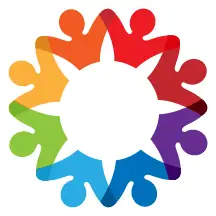
Provide a trauma-informed, Tier 1 intervention designed to be inclusive of, and accessible to, the entire school community.

Demonstrate positive outcomes in the areas of focus and attention, social and emotional learning, behavior, academic success, teacher resilience and effectiveness, classroom climate, and more.

Ensure an exceptional value with minimal investment.
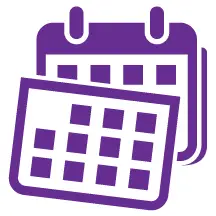
Provide a program delivery model that encourages internal leadership development to ensure sustainable, schoolwide implementation.
Yoga 4 Classrooms goals are:
A few of Yoga 4 Classrooms® objectives for teachers, students and schools include:
Teachers:
Students:
Schools:
The main Y4C curriculum includes 67 foundational activities (“mindful moments”) in six categories, all of which are suitable for the typical time and space crunched classroom – shoes stay on and no mats, equipment or experience is required. Activities include a variety of brain-boosting movements, breath exercises, visualizations, mindful focus activities, creative movement, and community-building games and discussions. Wellness and character-building discussion points such as the power of positive thinking, nutrition, and being a peacemaker support the development of the whole child.

Conscious breathing is an empowering tool for self-regulation. Let’s Breathe activities help students learn to calm and center, or empower and energize as needed.

Seated stretches help provide physical relief from long periods of sitting, improve focus, and keep the body and brain functioning efficiently, leaving students and teachers feeling refreshed and ready to focus on classroom instruction.

Stand Strong activities provide simple, structured opportunities for students and teachers to stand up and stretch, balance and strengthen using only a few feet of space near one’s desk.

Loosen Up activities can dispel stress through energetic release or introspection and focus, build community, and cultivate problem-solving, collaboration and sense of responsibility for the classroom and each other.

Guided visualizations, relaxations and mindfulness practices encourage students to bring their awareness to the present moment while offering an opportunity to “rest and reset” the body and mind.

From getting enough sleep to gratitude to being a good citizen, Be Well discussions and activities support character development and encourage healthy habits. Use them as themes of the month, areas of study, or on their own as morning meeting topics.

Hundreds of testimonials, dozens of success stories, and the outcomes of a variety of published and unpublished studies that include Y4C as an intervention, demonstrate a notable and inspiring impact.
Through alignment with a variety of educational standards and initiatives, the Y4C program supports goals for academic progress, health and fitness, safe and healthy school climate, mental health prevention, social and emotional learning, and personal and career development.
Yoga 4 Classrooms meets national standards for health and fitness education, including National Association for Sport and Physical Education (NASPE) standards and the CDC’s National Health Education Standards (NHES). Healthy students lead to healthy school performance. Yoga 4 Classrooms is designed to support physical fitness objectives; to provide children with information and skills to make and sustain healthy lifestyle choices; to teach strategies to improve student attentiveness and reduce anxiety; and to foster a healthy social environment within classrooms and schools – all of which better enable schools to meet their academic objectives.
The Yoga 4 Classrooms program supports schools in meeting National School Climate Standards. A positive, safe and supportive school environment is critical to students’ social, emotional and academic development. Yoga 4 Classrooms engages students in community-building and conflict-resolution skills in order to reduce incidents of physical violence and bullying, create a cooperative and supportive classroom environment, and enhance overall student performance. Click here to learn how our activities support school climate standards and to review school climate-related performance outcomes of the Yoga 4 Classrooms curriculum.
Y4C facilitates learning readiness, which can improve student achievement in core learning as required by state and national curriculum standards. By addressing the issues that impede an educators’ ability to educate – inattention, anxiety, social conflict and poor physical health – students become more receptive to learning. Y4C is committed to helping students become successful learners.
Y4C supports goals set forth in the Student Standards: Mindsets and Behaviors for Student Success by the American School Counselor Association (ASCA) which describe the knowledge, skills and attitudes students need to achieve academic success, college and career readiness and social/emotional development.
Yoga 4 Classrooms supports development of the five social and emotional learning competencies as identified by the Collaborative for Academic, Social, and Emotional Learning (CASEL): self-awareness, self-management, social awareness, relationship skills, and responsible decision making. Yoga 4 Classrooms curricula and activities promote the development of these competencies and the foundational skill of mindful awareness.
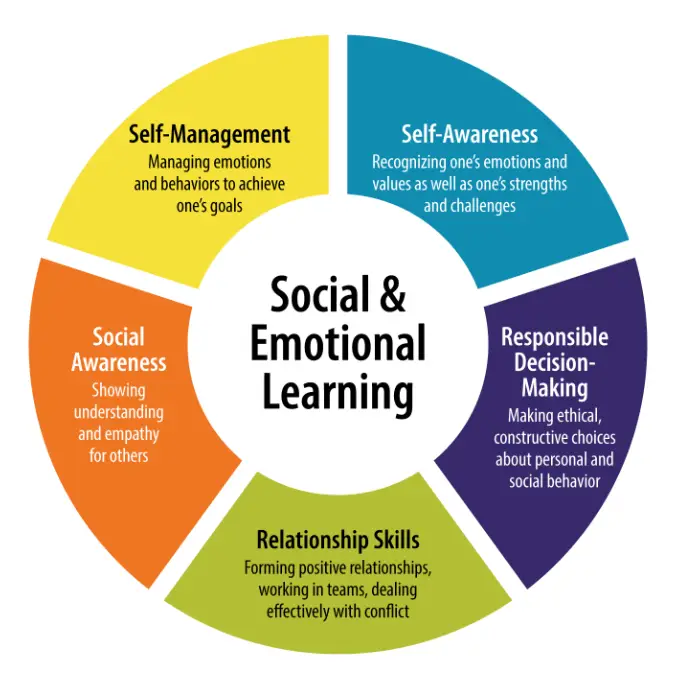
Yoga 4 Classrooms trainings are often used for earning continuing education hours as well as graduate-level semester credits to support salary advancement and/or to renew credentials for teachers, counselors, and other school professionals.
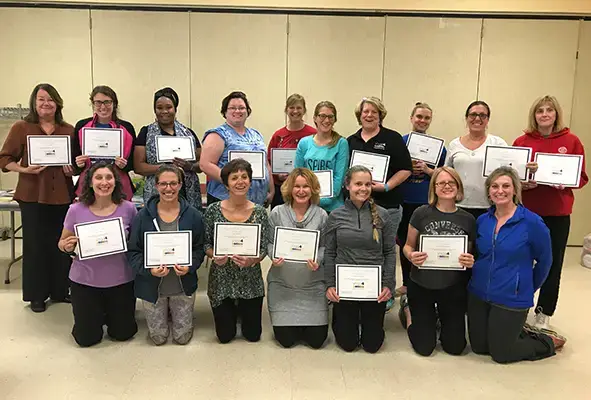

To help ensure effective, sustainable school wide implementation, our program delivery model focuses on empowering schools from the inside.
The Y4C IMPLEMENT™ Leadership Training is our advanced train-the-trainer program for school-based teams and individual school professionals who have experience using Y4C in their own classrooms and wish to expand the program as a schoolwide initiative to support physical, social and emotional health and well-being, learning-readiness and a positive school climate. This model promotes a collaborative and sustainable approach to implementation as School IMPLEMENT Leaders develop an action plan that supports their own school needs, goals and structures. Finally, ongoing costs are minimized as dependence on external program providers is eliminated.
Y4C becomes self-sustaining as educators continue to use the program with future groups of students, while the concepts are reinforced as students move up through the grades of the school. Once implemented schoolwide, Y4C has the potential to positively impact the well-being and success of the entire school community while supporting the development of a culture of mindfulness and compassion.
We keep it simple. Our 6hr. Yoga & Mindfulness in the Classroom training and activity cards empower individual school professionals or entire school communities to get started right away.
| Cookie | Duration | Description |
|---|---|---|
| cookielawinfo-checkbox-analytics | 11 months | This cookie is set by GDPR Cookie Consent plugin. The cookie is used to store the user consent for the cookies in the category "Analytics". |
| cookielawinfo-checkbox-functional | 11 months | The cookie is set by GDPR cookie consent to record the user consent for the cookies in the category "Functional". |
| cookielawinfo-checkbox-necessary | 11 months | This cookie is set by GDPR Cookie Consent plugin. The cookies is used to store the user consent for the cookies in the category "Necessary". |
| cookielawinfo-checkbox-others | 11 months | This cookie is set by GDPR Cookie Consent plugin. The cookie is used to store the user consent for the cookies in the category "Other. |
| cookielawinfo-checkbox-performance | 11 months | This cookie is set by GDPR Cookie Consent plugin. The cookie is used to store the user consent for the cookies in the category "Performance". |
| viewed_cookie_policy | 11 months | The cookie is set by the GDPR Cookie Consent plugin and is used to store whether or not user has consented to the use of cookies. It does not store any personal data. |
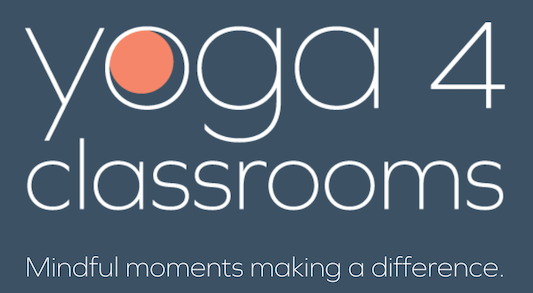
Sign up for our newsletter to get mindfulness tips, classroom tools, and exclusive offers—delivered straight to your inbox.
✨ Join now and get 10% off your first order! ✨